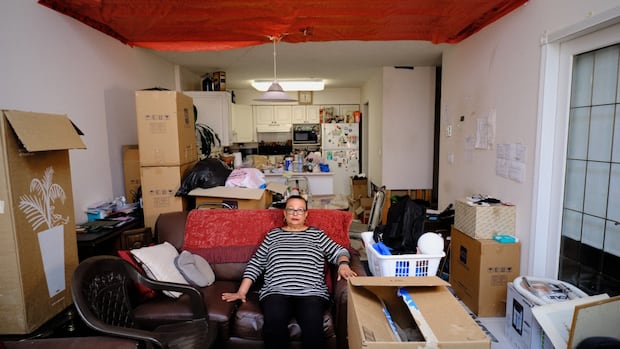A 73-year-old tenant has won a battle in B.C. Supreme Court to overturn an order to evict her from her two-bedroom rental apartment.
Janet Fraser challenged two decisions by B.C.’s Residential Tenancy Branch (RTB) that she said wrongly accepted her landlord’s “good faith” and did not take into account the “possibility of a dishonest ulterior purpose.”
Fraser rents an apartment in an eight-unit rental building with her 69-year-old partner Jerry, who is deaf and suffers from Stage 4 cancer and multiple sclerosis, according to the ruling.
The ruling does not state which city Fraser lives in. It was handed down in a New Westminster court.
She’s lived in the apartment for more than 20 years and pays $780 in rent, which Judge Sandra Sukstorf described as “significantly below-market.”
“Losing this long-standing, affordable housing would cause severe hardship for both Ms. Fraser and her partner,” Sukstorf said in her Aug. 28 decision.
Sukstorf agreed that the RTB arbitrator failed to assess the landlord’s good faith meaningfully and also did not engage with “key contradictory evidence.”
Eviction notices
The couple’s rental challenges began after the apartment building was sold to a new corporate landlord, 1392383 B.C. Ltd.
In October 2023, the landlord served Fraser an eviction notice for demolition and conversion of the building.
Fraser tried to negotiate a rent increase with the landlord in exchange for dropping the eviction, but the landlord’s agent refused, “stating that he could rent the unit for $1,500 to $2,000 more than she was paying,” according to the judge’s decision.
The notice was eventually cancelled because the landlord’s numbered company was missing a digit.
While the eviction process was happening, a major water leak caused extensive damage to Fraser’s apartment, resulting in a large hole in the ceiling that was “covered only by a tarp” and not fixed, Sukstorf said in her ruling.
A month later, the landlord served Fraser a second notice to end tenancy, saying the apartment would be converted into a caretaker unit.
The landlord told the RTB Fraser’s apartment was the only unit available, and the only one suited for a caretaker due to its location at the rear of the building with direct outside access.
The landlord’s agent, named Mr. Khela in the decision, stated the landlord intended to retain the existing property management company while also appointing the on-site caretaker.
“However, the property management company’s representative testified [at the RTB] that, in their experience, they had never managed a building that also had a live-in caretaker,” said Sukstorf.
Fraser contested the eviction notice twice, but was ultimately unsuccessful.
The RTB arbitrator granted the landlord an “order of possession” and ordered Fraser to leave the unit by Sept. 30, 2024.
The arbitrator said: “Although it may not seem fair to the tenant or the tenant’s advocate, the law permits a landlord to end a tenancy in certain situations…. I am satisfied that the landlord has established good faith to accomplish the stated purpose for ending the tenancy.”
‘Questionable eviction practices’
But Sukstorf said the arbitrator’s decision was “patently unreasonable” and failed to explain how the test for good faith was met.
Sukstorf noted the court does not determine good faith, but considers whether the arbitrator reasonably applied the correct legal test.
When it comes to showing good faith, Sukstorf said “any improper motive may invalidate the notice [to end tenancy]” and added the burden lies with the landlord to establish that the notice was issued in good faith.
Sukstorf said Fraser showed the arbitrator three other eviction notices, each citing family use, that had been recently issued to neighbours in her building.
Two of the notices listed the landlord as Harman Basutta, who the judge said does not appear on the corporate registry for the numbered company that owns the building. A third notice listed Harpreet Khela as the landlord.
But the judge noted only an individual landlord or a family corporation — not a numbered company — can give personal occupancy notice.
“While these notices were not directly at issue in this proceeding, they were significant because they suggested a broader pattern of questionable eviction practices aimed at removing tenants paying below-market rent,” Sukstorf said.
“The arbitrator ought to have considered this evidence in assessing the landlord’s credibility.”
Sukstorf said the RTB arbitrator also did not consider whether the landlord had an ulterior motive in deciding to employ a live-in caretaker or in choosing Fraser’s unit rather than another one.
The judge noted how another unit in the building “identical” to Fraser’s was also unoccupied, and there was “no explanation as to why this unit could not be used for a caretaker” nor why Fraser couldn’t have moved to that unit.
Judge sets aside RTB decisions
Sukstorf said Fraser showed evidence that “directly raised the possibility of a dishonest or ulterior purpose” and “pointed to a pattern of inconsistent and shifting explanations for why she needed to vacate the unit.”
She said the arbitrator has a heightened duty to provide transparent reasons because of the severe impact an eviction would have on a vulnerable tenant.
“The arbitrator’s reasons do not demonstrate that the required balancing and reasoning took place.”
The judge set aside the arbitrator’s decisions and sent the matter back to the RTB for a new hearing with a different decision-maker.







